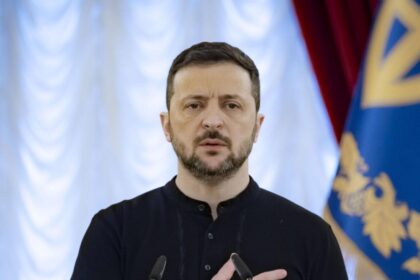By Adeyemi Adekunle
Turkish and Nigerien authorities have agreed to bolster cooperation across several critical sectors, including energy, mining, intelligence, and defense. This development follows a decisive move by Niger’s military junta to realign its international partnerships and expel French and U.S. military personnel from the West African nation.
On Wednesday, a high-level Turkish delegation, led by Foreign Minister Hakan Fidan, visited Niamey for pivotal discussions with Niger’s military leader, General Abdourahmane Tchiani. Tchiani, who assumed power in a coup that unseated President Mohamed Bazoum in July 2023, welcomed the Turkish overtures as part of his broader strategy to shift Niger’s alliances from Western nations to more diverse international partners.
“We are here to build a future together,” Fidan stated at a press briefing in Niamey. “Our discussions have been comprehensive, covering crucial areas such as defense intelligence, energy, and mining. This visit marks a new chapter in Turkish-Nigerien relations.”
The Turkish delegation’s visit culminated in the signing of a declaration of will aimed at fostering Turkish investments in Niger’s burgeoning energy sector. According to Turkey’s energy ministry, the agreement specifically targets the enhancement of oil and natural gas fields in Niger, highlighting the potential for substantial economic development and energy security in the region.
Niger, a nation endowed with Africa’s highest-grade uranium ores and the world’s seventh-largest producer of uranium, has recently taken bold steps to terminate mining contracts with several Western companies. Despite this, Turkey has clarified that its interests in Niger do not extend to uranium extraction. “Our focus is on sustainable development and mutual growth,” Fidan emphasized, dismissing speculations about Turkey’s potential uranium pursuits.
The strategic shift comes amid a backdrop of growing dissatisfaction within Niger over the presence of foreign military forces. General Tchiani’s administration has been vocal about the need for Niger to reclaim its sovereignty and economic independence. The ousting of French and U.S. troops, coupled with the termination of Western mining contracts, signifies a clear departure from the policies of the previous administration under President Bazoum.
At the meeting in Niamey, Tchiani expressed his administration’s eagerness to embrace new partnerships that respect Niger’s autonomy and contribute to its long-term stability. “Our country is rich in resources, but we must ensure that these resources benefit our people,” Tchiani remarked. “Turkey’s approach aligns with our vision for a self-reliant and prosperous Niger.”
The implications of this newfound cooperation are far-reaching. By aligning with Turkey, Niger is not only diversifying its economic and military partnerships but also positioning itself as a pivotal player in the regional geopolitical landscape. The collaboration is expected to bolster Niger’s defense capabilities through enhanced intelligence-sharing and military support, which could play a crucial role in addressing the security challenges faced by the nation.
Economic analysts suggest that Turkish investments in Niger’s oil and gas sectors could significantly boost the country’s economic growth, creating jobs and improving infrastructure. Moreover, the focus on sustainable energy development resonates with global trends toward renewable energy sources, positioning Niger as a forward-thinking nation in the realm of energy production.
Local reactions in Niamey have been mixed but largely optimistic. Residents express hope that the new alliances will bring tangible benefits and enhance the country’s economic resilience. “We have seen many promises in the past, but this time feels different,” said Amina Ibrahim, a local business owner. “The focus on mutual respect and development gives us hope for a better future.”
As Turkey and Niger embark on this path of enhanced cooperation, the international community watches closely. The success of this partnership could serve as a model for other African nations seeking to diversify their international alliances and leverage their natural resources for national development.
The citizens believe amidst the bustling markets and the serene banks of the Niger River, a new era dawns—one marked by hope, resilience, and the promise of a prosperous future built on mutual respect and cooperation.




